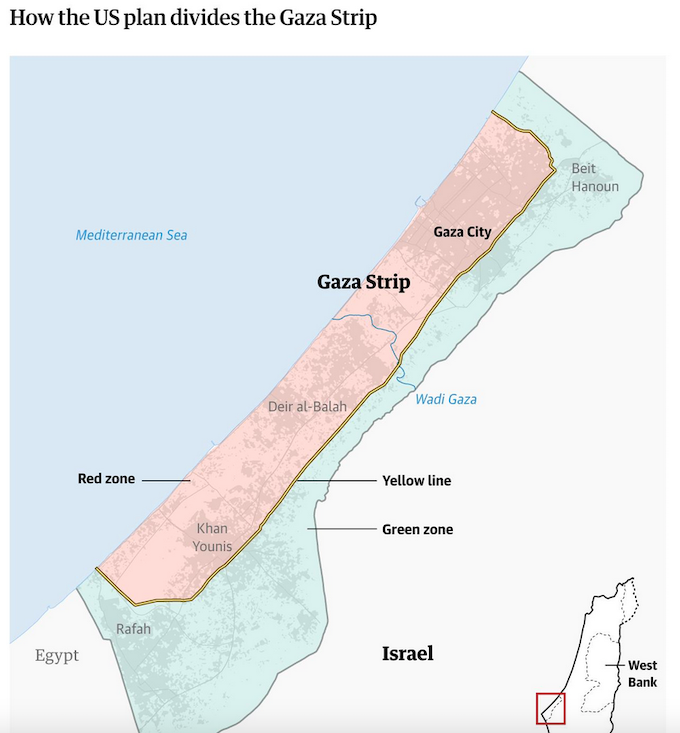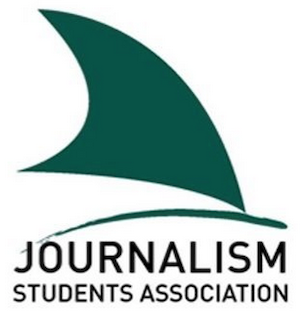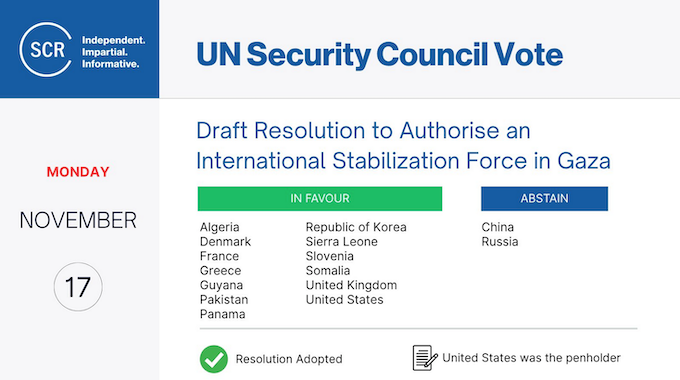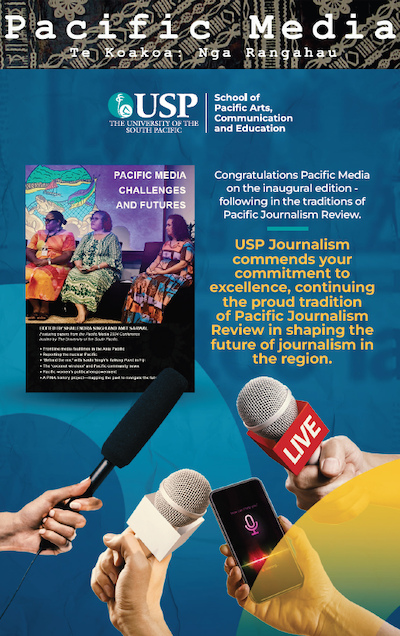The UN Security Council passed a regime change resolution against Gaza on Monday, effectively issuing a mandate for an invasion force to enter the besieged coastal enclave and install a US-led ruling authority by force.
ANALYSIS: By Robert Inlakesh
Passing with 13 votes in favour and none in defiance, the new UN Security Council (UNSC) resolution has given the United States a mandate to create what it calls an “International Stabilisation Force” (ISF) and “Board of Peace” committee to seize power in Gaza.
US President Donald Trump has hailed the resolution as historic, as Israeli Prime Minister Benjamin Netanyahu’s government has stood in opposition to an element of the resolution that mentions “Palestinian Statehood”.
In order to understand what has just occurred, it requires a breakdown of the resolution itself and the broader context surrounding the ceasefire deal.
- READ MORE: Hamas, Gaza factions say UN resolution undermines ‘national will’
- IDF failed on battlefield to disarm Hamas, but UN vote gives power to US-Israel, says analyst
- UN Security Council passes US resolution backing international Gaza force
- Other Gaza reports
When these elements are combined, it becomes clear that this resolution is perhaps one of the most shameful to have passed in the history of the United Nations, casting shame on it and undermining the very basis on which it was formed to begin with.
An illegal regime change resolution
In September 2025, a United Nations commission of inquiry found Israel to have committed the crime of genocide in the Gaza Strip.
For further context, the International Court of Justice (ICJ), the most powerful international legal entity and organ of the UN, ruled that Israel is plausibly committing genocide and thus issued orders for Tel Aviv to end specific violations of international law in Gaza, which were subsequently ignored.
Taking this into consideration, the UN itself cannot claim ignorance of the conditions suffered by the people of Gaza, nor could it credibly posit that the United States is a neutral actor capable of enforcing a balanced resolution of what its own experts have found to be a genocide.
This resolution itself is not a peace plan and robs Palestinians of their autonomy entirely; thus, it is anti-democratic in its nature.
It was also passed due in large part to threats from the United States against both Russia and China, that if they vetoed it, the ceasefire would end and the genocide would resume. Therefore, both Beijing and Moscow abstained from the vote, despite the Russian counterproposal and initial opposition to the resolution.
It also gives a green light to what the US calls a “Board of Peace”, which will work to preside over governing Gaza during the ceasefire period. The head of this board is none other than US President Trump himself, who says he will be joined by other world leaders.
Former British Prime Minister, Tony Blair, who launched the illegal invasion of Iraq, has been floated as a potential “Board of Peace” leader also.
Vowed a ‘Gaza Riviera’
On February 4 of this year, President Trump vowed to “take over” and “own” the Gaza Strip. The American President later sought to impose a plan for a new Gaza, which he even called the “Gaza Riviera”, which was drawn up by Zionist economist Joseph Pelzman.
Part of Pelzman’s recommendations to Trump was that “you have to destroy the whole place, restart from scratch”.
As it became clear that the US alone could not justify an invasion force and simply take over Gaza by force, on behalf of Israel, in order to build “Trump Gaza”, a casino beach land for fellow Jeffrey Epstein-connected billionaires, a new answer was desperately sought.
Then came a range of meetings between Trump administration officials and regional leaderships, aimed at working out a strategy to achieve their desired goals in Gaza.
After the ceasefire was violated in March by the Israelis, leading to the mass murder of around 17,000 more Palestinians, a number of schemes were being hatched and proposals set forth.
The US backed and helped to create the now-defunct so-called “Gaza Humanitarian Foundation” (GHF) programme, which was used to privatise the distribution of aid in the territory amidst a total blockade of all food for three months.
Starving Palestinians, who were rapidly falling into famine, flocked to these GHF sites, where they were fired upon by US private military contractors and Israeli occupation forces, murdering more than 1000 civilians.
The ‘New York Declaration’
Meanwhile, Saudi Arabia and France were busy putting together what would become the “New York Declaration” proposal for ending the war and bringing Western nations to recognise the State of Palestine at the UN.
Suddenly, seemingly out of nowhere, here came Trump’s so-called “peace plan” that was announced at the White House in October. This plan appeared at first to be calling for a total end to the war, a mutual prisoner exchange and the withdrawal of Israeli forces from Gaza in a phased approach.
From the outset, Trump’s “20-point plan” was vague and impractical. Israel immediately violated the ceasefire from the very first day and has murdered nearly 300 Palestinians since then. The first phase of the ceasefire deal was supposed to end quickly, ideally within five days, but the deal has stalled for over a month.
Throughout this time, it has become increasingly clear that the Israelis are not going to respect the “Yellow Line” separation zone and have violated the agreement through operating deeper into Gaza than they had originally agreed to.
The Israeli-occupied zone was supposed to be 53 percent of Gaza; it has turned out to be closer to 58 percent. Aid is also not entering at a sufficient rate, despite US and Israeli denials; this has been confirmed by leading rights groups and humanitarian organisations.
In the background, the US team dealing with the ceasefire deal that is headed by Jared Kushner and Steve Witkoff has been juggling countless insidious proposals for the future of Gaza.
Even publicly stating that reconstruction will only take place in the Israeli-controlled portion of the territory, also floating the idea that aid points will be set up there in order to force the population out of the territory under de facto Hamas control. This has often been referred to as the “new Gaza plan”.
The disastrous GHF
As this has all been in the works, including discussions about bringing back the disastrous GHF, the Israelis have been working alongside four ISIS-linked collaborator death squads that it controls and who operate behind the Yellow Line in Gaza.
No mechanisms have been put in place to punish the Israelis for their daily violations of the ceasefire, including the continuation of demolition operations against Gaza’s remaining civilian infrastructure. This appears to be directly in line with Joseph Pelzman’s plan earlier this year to “destroy the whole place”.
The UNSC resolution not only makes Donald Trump the effective leader of the new administrative force that will be imposed upon the Gaza Strip, but also greenlights what it calls its International Stabilisation Force. This ISF is explicitly stated to be a multinational military force that will be tasked with disarming Hamas and all Palestinian armed groups in the Gaza Strip.
The US claims it will not be directly involved in the fighting with “boots on the ground”; it has already deployed hundreds of soldiers and has been reportedly building a military facility, which they deny is a base, but for all intents and purposes will be one.
Although it may not be American soldiers killing and dying while battling Palestinian resistance groups, they will be in charge of this force.
This is not a “UN peacekeeping force” and is not an equivalent to UNIFIL in southern Lebanon; it is there to carry out the task of completing Israel’s war goal of defeating the Palestinian resistance through force.
In other words, foreign soldiers will be sent from around the world to die for Israel and taxpayers from those nations will be footing the bill.
‘Self-determination’ reservation
The only reason why Israel has reservations about this plan is because it included a statement claiming that if the Palestinian Authority (PA) — that does not control Gaza and is opposed by the majority of the Palestinian people — undergoes reforms that the West and Israel demand, then conditions “may finally be in place for a credible pathway to Palestinian self-determination and statehood”.
A keyword here is “may”, in other words, it is not binding and was simply added in to give corrupted Arab leaderships the excuse to vote yes.
Hamas and every other Palestinian political party, with the exception of the mainstream branch of Fatah that answers to Israel and the US, have opposed this UNSC resolution.
Hamas even called upon Algeria to vote against it; instead, the Algerian leadership praised Donald Trump and voted in favour. Typical of Arab and Muslim-majority regimes that don’t represent the will of their people, they all fell in line and bent over backwards to please Washington.
It won’t likely work
As has been the story with every conspiracy hatched against the people of Gaza, this is again destined to fail. Not only will it fail, but it will likely backfire enormously and lead to desperate moves.
To begin with, the invasion force, or ISF, will be a military endeavour that will have to bring together tens of thousands of soldiers who speak different languages and have nothing in common, in order to somehow achieve victory where Israel failed.
It is a logistical nightmare to even think about.
How long would it take to deploy these soldiers? At the very least, it’s going to take months. Then, how long would this process take? Nobody has any clear answers here.
Also, what happens if Israel begins bombing again at any point, for example, if there is a clash that kills Israeli soldiers? What would these nations do if Israeli airstrikes killed their soldiers or put them in harm’s way?
Also, tens of thousands of soldiers may not cut it; if the goal is to destroy all the territory’s military infrastructure, they may need hundreds of thousands. Or if that isn’t an option, will they work alongside the Israeli military?
It is additionally clear that nobody knows where all the tunnels and fighters are; if Israel couldn’t find them, then how can anyone else?
After all, the US, UK, and various others have helped the Israelis with intelligence sharing and reconnaissance for more than two years to get these answers.
How do regimes justify this?
Finally, when Arab, European, or Southeast Asian soldiers return to their nations in body bags, how do their regimes justify this? Will the president or prime minister of these nations have to stand up and tell their people . . . “sorry guys, your sons and daughters are now in coffins because Israel needed a military force capable of doing what they failed to do, so we had to help them complete their genocidal project”.
Also, how many Palestinian civilians are going to be slaughtered by these foreign invaders?
As for the plan to overthrow Hamas rule in Gaza, the people of the territory will not accept foreign invaders as their occupiers any more than they will accept Israelis. They are not going to accept ISIS-linked collaborators as any kind of security force either.
Already, the situation is chaotic inside Gaza, and that is while its own people, who are experienced and understand their conditions, are in control of managing security and some administrative issues; this includes both Hamas and others who are operating independently of it, but inside the territory under its de facto control.
Just as the Israeli military claimed it was going to occupy Gaza City, laying out countless plans to do this, to ethnically cleanse the territory and “crush Hamas”, the US has been coordinating alongside it throughout the entirety of the last two years. Every scheme has collapsed and ended in failure.
It has been nearly a month and a half, yet there are still no clear answers as to how this Trump “peace plan” is supposed to work and it is clear that the Israelis are coming up with new proposals on a daily basis.
There is no permanent mechanism for aid transfers, which the Israelis are blocking. There is no clear vision for governance.

‘Two Gazas’ plan incoherent
The “two Gazas” plan is not even part of the ceasefire or Trump plan, yet it is being pursued in an incoherent way. The ISF makes no sense and appears as poorly planned as the GHF.
Hamas and the other Palestinian factions will not give up their weapons. There is no real plan for reconstruction. The Israelis are adamant that there will be no Palestinian State and won’t allow any independent Palestinian rule of Gaza, and the list of problems goes on and on.
What it really looks like here is that this entire ceasefire scheme is a stab in the dark attempt to achieve Israel’s goals while also giving its forces a break and redirecting their focus on other fronts, understanding that there is no clear solution to the Gaza question for now.
The United Nations has shown itself over the past two years to be nothing more than a platform for political theatre. It is incapable of punishing, preventing, or even stopping the crime of all crimes.
Now that international law has suffocated to death under the rubble of Gaza, next to the thousands of children who still lie underneath it, the future of this conflict will transform.
This UNSC vote demonstrates that there is no international law, no international community, and that the UN is simply a bunch of fancy offices, which are only allowed to work under the confines of gangster rule.
If the Palestinian resistance groups feel as if their backs are against the wall and an opportunity, such as another Israeli war on Lebanon, presents them the opportunity, then there is a high likelihood that a major military decision will be made.
In the event that this occurs, it will be this UNSC resolution that is in large part responsible.
When the suffering in Gaza finally ends, whether that is because Israel obliterates all of its regional opposition and exterminates countless other civilians in its way, or Israel is militarily shattered, the UN should be disbanded as was the League of Nations. It is a failed project just as that which preceded it.
Something new must take over from it.
Robert Inlakesh is a journalist, writer, and documentary filmmaker. He focuses on the Middle East, specialising in Palestine. He contributed this article to The Palestine Chronicle and it is republished with permission.
This post was originally published on Asia Pacific Report.











 (@LetsStopC9)
(@LetsStopC9) 

 Christ the King vs “Judeo-Christian”
Christ the King vs “Judeo-Christian” 
 Free Speech vs Cancel Culture
Free Speech vs Cancel Culture 
 NO WAY, HELL JUST FROZE OVER: Ben Shapiro just told Matt Walsh and everyone else on the Right, you won’t survive if you refuse to police your own extremists.
NO WAY, HELL JUST FROZE OVER: Ben Shapiro just told Matt Walsh and everyone else on the Right, you won’t survive if you refuse to police your own extremists.
 (@catturd2)
(@catturd2) 
 3 Just Stop Oil supporters have thrown soup over 2 of Van Gogh paintings in the ‘Poets and Lovers’ exhibition at the National Gallery.
3 Just Stop Oil supporters have thrown soup over 2 of Van Gogh paintings in the ‘Poets and Lovers’ exhibition at the National Gallery. Support people in resistance:
Support people in resistance: 
